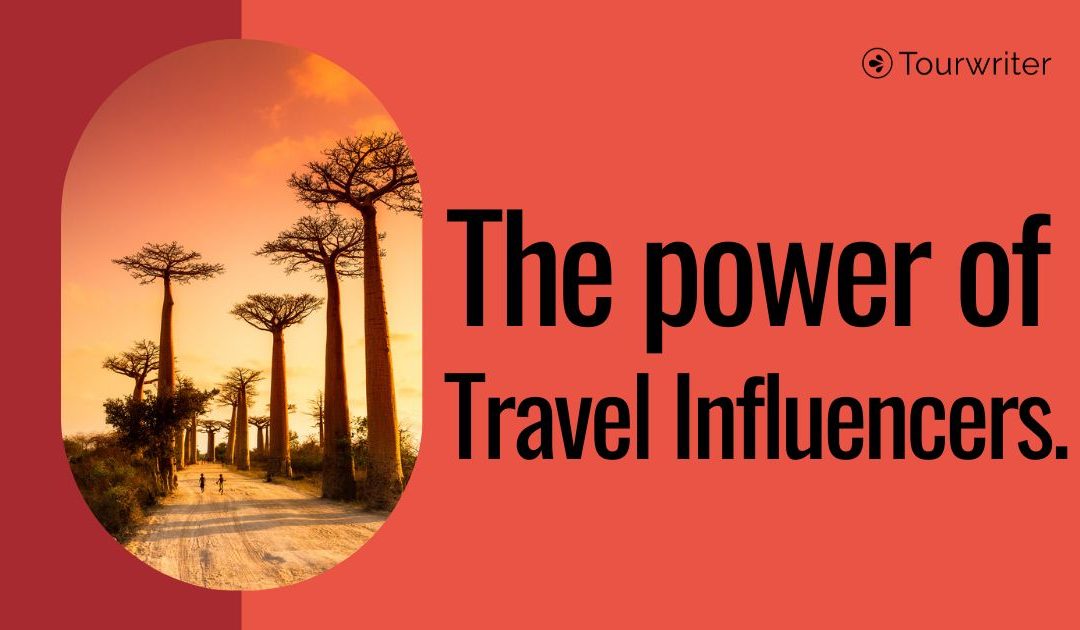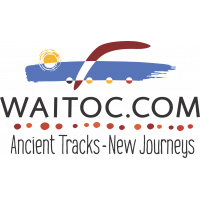

Hiring talent in a post-covid world

Borders are reopening, vaccine passports are being widely adopted and pent up travel demand is reaching a boiling point. Although new variants of COVID-19 are creating some uncertainty, experts believe that 2022 will be the year the tourism industry finally begins to rebound .
Tour operators preparing for this restart are facing a number of unprecedented challenges; one of the most notable is hiring talent in a post-pandemic environment. In the following blog we’ll take a look at the state of the talent pool in the tourism industry, and guide you through some tips and tricks for attracting top talent in a post-covid world.
The state of the talent pool in tourism
According to Statista, over 100 million jobs were lost in the tourism industry due to the COVID-19 pandemic, with tourism hotspots like New Zealand reporting 4 out of every 10 tourism jobs lost in 2020 alone.
Despite the passion that runs rife within tourism professionals worldwide, as we pass the two year anniversary, the reality is that many of those that lost their jobs have moved on to work in roles within industries that were able to provide a more reliable income source during the pandemic. As a result, the available pool of experienced talent is expected to be significantly smaller than it was prior to the pandemic.
Global economies have recovered from the initial shock of early 2020 significantly faster than many predicted. Developed nations such as United States , United Kingdom and Australia have reported unemployment rates at near to (and in some cases, lower) than pre-pandemic levels. Although promising from an economic perspective, the lower unemployment rates means the employer market is going to be all the more competitive.
Tourism industry perceptions
Even before the pandemic, the tourism industry had a challenge in attracting and maintaining talent within the industry. This was due to the perceptions society associated with the industry itself; including, poor working conditions, low pay, seasonality, and unknown career pathways. The pandemic has now increased the challenge further by adding uncertainty around when international and domestic travel will return in full-force around the world. With each country opening up at different times and with different requirements making it even harder to create certainty around employment opportunities.
For example, in New Zealand, Go with Tourism has created a workforce by combining the knowledge and experience of a variety of stakeholders within the tourism industry to tackle the employment challenges. They have come up with four solutions;
- Create a Tourism and Hospitality Accord
- Build an industry toolkit
- Improve and promote career and training opportunities
- Community Engagement Programme
These four solutions will collectively work together to adjust New Zealanders’ perception of the Tourism Industry, which in turn will encourage talent to return to or enter the industry. With this information in mind what can you, as a tourism business, do right now to encourage the right people to apply for your roles?

The elephant in the room
Firstly, let’s talk about money. After the past two years, we know your balance sheet has been hit hard, making rehiring with competitive salaries all the more daunting. Remember, a lot of other companies who are restarting are in the same boat as you. While it’s important to offer realistic livable wages, there’s other creative solutions your business can undertake to attract top talent in a post covid world.
Offer Flexible Working
Since the start of the pandemic people have become more aware of how, when and where they spend their time. By offering a flexible working environment the job will be more attractive to the pool of talent. This has been reinforced by research showing that 45% of workers said the shift to working remotely had a positive impact on them in the past year.
A flexible working environment can include; letting employees work from home for some or all days of the week, encouraging employees to start and finish work at the times that suits them best each day, or letting employees decide which days of the week they want to work e.g. have a Sunday to Thursday work week. Showing a willingness to allow flexibility and remote working will encourage potential employees to apply, because they can see the role will allow them to have a better work-life balance.

Employee benefits
For many applicants, working with a company that aligns with their values is just as important as the salary they will receive. Think about your business’s mission and vision. How can you align your employee benefits with these guiding resources to create a workplace environment that matches your values? Some ideas for benefits could be:
- Share scheme – Where employees can sign up to receive shares in the company. This encourages your employees to help the business succeed, promotes loyalty to the business and gives the employees other potential sources of income through dividends or acquisitions.
- A discount of your product or service – Even a small discount can be seen as a benefit for a potential employee. The discount might also encourage the employee to bring their family and friends to show off their new job, which brings in new customers.
- Company culture – Do you have a welcoming and inclusive company culture? Including things like team building events, lunches, social group activities, will help grow collaboration and make your employees feel more comfortable at work. As it allows employees a chance to learn more about their colleagues in a social setting
- Corporate values – What values does your company have that you expect all your employees to hold? Being transparent about these values will allow applicants to determine if their values match. If the applicant can connect with your company through a shared value they are more likely to want the role and select it over a different opportunity.
- Corporate social responsibility – Mention any charity work you do or that an employee can do through the business. Do you support any charities? Make sure you explain the reason behind the businesses support. Why is it important that the business supports this charity, it could be because the charity supports the protection of a native environment that you operate close to.
Demonstrate the career pathway
Throughout their life experiences a lot of people will only interact and see the frontline tourism jobs within the industry itself. Many don’t realise the scale of the tourism industry and how businesses have a large amount of behind-the-scenes roles that assist with businesses day to day operations.
Demonstrate to potential employees how the role could lead into a career, make it clear what skills you are going to teach them and what courses or resources will be available. You are highlighting how the job they are getting paid for now, could lead to future opportunities in an exciting industry that is starting fresh and re-growing from the impacts of the pandemic.

Reframe your idea of the “Ideal Applicant”
The “Ideal Applicant” before the pandemic was a person who had; experience working in the tourism industry; or could have completed, or be in the process of completing, education with a tourism focus. Now, you will need to reframe your idea of an “Ideal Applicant” focus on what values are important for the applicant to hold, what attributes you can train and most importantly, how they will fit into the team.
Welcome talent from other industries
Don’t be afraid to hire a person who hasn’t worked in the tourism industry before, you might be surprised what they can offer. The tourism industry is not the only industry that has been affected by the pandemic. The hospitality and event industries have both suffered and lost a lot of talent. Workers from both these industries will have a lot of transferable skills such as; time management, communication skills, customer service skills, and teamwork. These skills will enable them to succeed in the role.There are other industries that have been pushed to breaking point due to the pandemic, such as healthcare and logistics. These industries may have burnt out staff who are looking for a fresh change and could be eager to try something completely new.
Applicants with different industry experiences will not only bring different skills, but also bring new perspectives. They might have a new idea for the business that increases efficiency or creates a new experience for customers. By bringing in different perspectives from a variety of different industries you will get multiple fresh perspectives and a variety of new ideas that could impact and improve your business in the long run.
Don’t be afraid of inexperience
A new pool of talent enters the workforce each year; the school leavers or the young adults returning from overseas who are yet to nail down what career they are looking for. These applicants might not have much experience yet, but what they lack in experience they make up for in drive and a willingness to learn.
For these applicants instead of looking at where they have worked, look at what skills they have and what attitude they present. These days the younger generation has more computer and digital skills that could be used to the businesses advantage, such as helping update the website and social media. They may also bring some fresh perspective and ideas that better suit the younger generations. Their willingness to learn will allow you to teach them the best ways to operate in your business and help them grow with you. You never know, the school leaver you hire today could become a leader of the tourism industry in the future.

Passionate people
If the tourism industry is known for anything it is the passion each and every person has. The way a travel expert will curate an experience to share a culture, or how a tour guide will create a life-long memory. This passion and dedication to creating eye-opening experiences is what every person starting in the industry aspires to be. Finding those applicants who have enthusiasm and curiosity about the tourism industry, which can be turned into passion for tourism and your business products or services, would be a huge asset. Look for those diamonds in the rough and see how they shine when you polish them.

How does the travel industry actually work?
Who are the key players in the industry, where do they all fit together and how does the industry actually work?! There’s no doubt that the travel industry is a confusing space to wrap your head around so we’ve broken it down for you in this easy new resource.

Travel designers- meet the influencers you should work with.
Understand the role travel influencers play in the industry and why tour operators should be following, interacting and collaborating with them. Explore eight global travel influencers who are inspiring travellers daily.

Tourism news websites you can trust
In the tourism industry it can be hard to differentiate the reliable travel news sources from the not-so-trustworthy ones. In this blog we summarise the top travel news websites that tour operators, travel agencies and DMC’s should pay attention to.

How to set your team up for success when introducing new software
Making changes happen is hard. Especially when it is something that will create a significant impact on the way you work, like new software. We discover what change management is and how it can assist you, your leaders and your team in creating new processes that will make you more successful in the long run. Is it time for a change?
- Hospitality Industry
The need for talented employees in the hotel and tourism industry

April 19, 2021 •
4 min reading
With 1 out of 10 jobs currently supported by the Travel and Tourism industry, 9.9% of global employment, it’s evident that this is one of the world’s largest economic sectors. In fact, according to The Economic Impact of Travel and Tourism research for 2018 conducted by the World Travel and Tourism Council, “it is estimated that nearly 100 million new jobs could be created over the decade ahead”.
The tourism market is growing rapidly and the need for talented employees in our industry will keep increasing accordingly.
Countries such as Switzerland, where the hotel and tourism market is mature, will have to attract talented people in a multitude of ways. At the moment, most industries are competing for the same employees, the same skills, and given that working conditions in the hospitality industry may not always seem attractive, students from hospitality schools often choose a different career path. This means that hoteliers need to be proactive and learn how to attract new talent to come and work at their hotel in the future, as offer will surpass demand. This will not be an easy process as working at a hotel often means working long hours, on weekends, in remote places and so on. Furthermore, with tourism in Asia booming and consequently requiring an increasing number of talented employees, those who want to have a career in this industry and progress rapidly will prefer to work there. This increases the difficulties for the Swiss hotel market, and hoteliers need to start investing and renewing their reservoir of talented people urgently. Looking at these figures and at a time of an unprecedented crisis in the hotel industry, what remains of these forecasts? We can observe two types of companies: the ones that are suffering and the others that are thriving in these uncertain times. It is now necessary to review the figures concerning labor demand for hospitality in the near future. What remains is that COVID-19 served as an accelerator for the implementation of innovation in domains s
uch as digital, education, cost control… pushing us to rethink how we do things.
How can Swiss hotels handle this issue?
The retention and acquisition of talented employees are going to be critical in the future of the hotel industry. The first step for industry professionals is to acknowledge this issue and try to conceptualize new, innovative ways of attracting talent to work for them in the future: finding and offering incentives other than money is one example. Imagine a talented person who has been offered the option to work at Google in Zurich or at a hotel in Interlaken. Chances are, they will likely choose to work for the former which benefits from a string company culture, attractive benefits and a buzzing location. Therefore, it’s essential for a hotelier in Interlaken to know how to find the right people who are not only prepared to stay in Interlaken but also be enthusiastic about working in such a beautiful environment. Offering incentives for employees to stay long-term is another crucial point. This is something that every hotelier should invent for themselves, as everyone will come up with a different formula that best serves their own business and ideal employees.
Innovative incentives for employees
When competing for talent in a highly competitive environment, there are infinite possibilities to offer innovative incentives that will be attractive, and that’s why any entrepreneur needs to remain forward-thinking and upgrade their business regularly. The start-up company Hotelswaps.com is basically a hotel room exchange program allowing owners and operators of high-quality hotels to swap their empty rooms for free stays in hotels worldwide. Everyone knows that there are vacant rooms in many hotels but nothing had been done about it until now. Hotel managers and operators can use this service to offer their employees rewards in the form of free stays at great hotels worldwide.
This is an excellent idea because these young people love to travel in style but may not have the means, and it provides them with an opportunity to experience firsthand the quality service and experience they work towards all year round. What this start-up company has done is to pull all the rooms of participating hotels that are not used during a specific period and put them into a matching device. Based on this matching device, hoteliers can send their employees who are on vacation to stay in stylish hotels all around the globe. In this way, someone who works in Interlaken can go to Barcelona or London and stay in a very nice room, offered for free by their employer. Being able to stay in 4- and 5-star hotels during your travels is a very nice perk for all employees.
Using those empty hotel rooms as a way to give a great incentive to your employees is a very clever idea for hoteliers, as these rooms are not available to everyone. On top of that, hotel owners also benefit from receiving these industry guests, since they generate additional revenue in the form of room upgrades, additional room stays booked, F&B and other services such as spa and room service.
The main asset of Swiss hoteliers
The main asset of Switzerland, and consequently of Swiss hoteliers, is pure water and air: it’s magic and we need to defend that. Imagine being a talented manager working in Beijing where you cannot go out and run because of the pollution and one day you arrive in a place like Switzerland where you can breathe fresh air and have an incredible quality of life - this is a life-changing experience. Why would you choose to live anywhere else when you can have such a great quality of life?
At the same time, water in Switzerland is pure and drinkable in most places. These two basic but vital elements, water and air, are of paramount importance to our everyday life, yet they are not widely available in other countries around the world. With 3 Swiss cities among the top 10 worldwide for Quality of Life (Mercer Quality of Life City Rankings 2019), Zurich, Geneva and Basel, Switzerland has legitimate claims in attracting and retaining a talented workforce. The fundamental standards of natural environment, economic growth, stability, safety, quality education, and so on are strong arguments to encourage long term engagement.

Digital Communication Consultant, EHL
Keep reading

Hospitality management careers list for hotel enthusiasts
May 07, 2024

How Airbnb and short-term rentals reshape rural and urban communities
May 02, 2024

What does a Hotel Manager do?
This is a title
This is a text
- Bachelor Degree in Hospitality
- Pre-University Courses
- Master’s Degrees & MBA Programs
- Executive Education
- Online Courses
- Swiss Professional Diplomas
- Culinary Certificates & Courses
- Fees & Scholarships
- Bachelor in Hospitality Admissions
- EHL Campus Lausanne
- EHL Campus (Singapore)
- EHL Campus Passugg
- Host an Event at EHL
- Contact our program advisors
- Join our Open Days
- Meet EHL Representatives Worldwide
- Chat with our students
- Why Study Hospitality?
- Careers in Hospitality
- Awards & Rankings
- EHL Network of Excellence
- Career Development Resources
- EHL Hospitality Business School
- Route de Berne 301 1000 Lausanne 25 Switzerland
- Accreditations & Memberships
- Privacy Policy
- Legal Terms
© 2024 EHL Holding SA, Switzerland. All rights reserved.
Guest editorial: Tourism talent challenge post-pandemic and the way forward
Tourism Review
ISSN : 1660-5373
Article publication date: 18 January 2024
Issue publication date: 18 January 2024
Leung, X.Y. and Ladkin, A. (2024), "Guest editorial: Tourism talent challenge post-pandemic and the way forward", Tourism Review , Vol. 79 No. 1, pp. 1-8. https://doi.org/10.1108/TR-02-2024-742
Emerald Publishing Limited
Copyright © 2024, Emerald Publishing Limited
Tourism talent challenge post-pandemic and the way forward
The tourism and hospitality industry has long been known for its low wages, long hours and weekend work and emotional labor ( Liu-Lastres et al. , 2023 ). As a result, the tourism industry grapples with a multifaceted talent challenge characterized by issues such as labor shortage, seasonal job instability, high turnover rates, skill gaps and a lack of clear career progression ( WTTC, 2015 ). Therefore, talent management, or how to recruit, retain and develop an engaged workforce, has played a critical role in the tourism industry ( Barron et al. , 2014 ). Researchers have demonstrated that successful talent management not only directly affects employees’ job performance but also indirectly impacts organizational outcomes, especially financial outcomes ( Capelleras et al. , 2021 ).
The current COVID-19 pandemic has had devastating effects on the global tourism and hospitality workforce, causing unprecedented challenges to tourism talent management ( Girish et al. , 2022 ; Maggi and Vroegop, 2023 ). The COVID-19 crisis not only brought travel to a standstill, causing massive revenue losses, but also amplified disadvantages for working in the tourism industry. During the pandemic, the increasing job insecurity and vulnerability caused a large number of tourism workers to voluntarily and involuntarily leave the industry ( Baum et al. , 2020 ). According to WTTC (2021a ), 62 million tourism jobs were lost worldwide in 2020, accounting for almost 20% of the global tourism workforce.
As the global tourism industry is recovering from the pandemic, one of the most significant talent management challenges the tourism industry faces is severe labor shortages. In a recent report, WTTC (2021b ) uncovered a prolonged tourism labor shortfall: around one in 13 positions would remain unfilled in 2022. The anxiety, confusion and enhanced risk perception caused by the pandemic lowered people’s desire to pursue a job in the tourism industry ( Liu-Lastres et al. , 2023 ). The challenge for tourism and hospitality businesses competing for talent extends beyond the tourism industry, as fierce competition from other service industry sectors is growing ( King et al. , 2021 ). Thus, the tourism industry needs to find smart ways to attract and retain talent for sustainable development ( Girish et al. , 2022 ; Maggi and Vroegop, 2023 ; Sun et al. , 2022 ).
In response to this call, we developed this special issue in the Tourism Review , dedicated to the global tourism talent challenge, human resources management (HRM) and organizational behavior in the tourism/hospitality industry. The special issue aims to support the global tourism and hospitality industry for a speedy, healthy and sustainable recovery from the COVID-19 pandemic. This special issue has received great interest from scholars all over the world. After rounds of rigorous peer-review process, a total of 17 papers have been accepted for publication in this special issue. The papers collectively offer reflections on a range of existing themes and issues evident in tourism HRM research, including recruitment, career attractiveness, employee well-being, performance, retention and turnover, diversity and inclusion and the COVID-19 pandemic impacts. The papers apply both quantitative and qualitative methods in developing scales and models, discussing both theoretical and practical value of the research and finding solutions to many talent challenges in the sector. The papers also show a wide variety of tourism sector contexts, such as hotels, cruises, tour guides and travel agencies, and geographical contexts, including China, India, Egypt, Australia and Macau. Collectively, the papers build incremental knowledge and understanding of the global tourism talent challenge, whilst each individual piece has its own contribution.
As outlined previously, the hospitality sector has long struggled with retention, with known labor shortages worsened by the COVID-19 pandemic. A number of papers reflect broadly on issues affecting recruitment and retention, questioning how we might better attract employees and the barriers and enablers to doing so.
In relation to attracting the workforce, one under-researched area is that of occupational stigma. The paper by Li, Peng and Xu explores this gap in “Internship and career adaptability: addressing occupational stigma and identity for hospitality management students.” Using a qualitative methodology interviewing Chinese hospitality students, the paper found that high career adaptability helps reduce interns’ perception of occupational stigma and strengthens their occupational identity. Students from academic and vocational schools display different levels of career adaptability in terms of job matching and career promotion. The long-term influence on occupational identity is more significant from professional development potential than job adaptation. The paper connects to the broader literature on careers and education in hospitality, with occupational perceptions being a key driver of occupational choice.
Another paper by Wang, Cheung and Zhai, “Career adaptability and career optimism: Applying career construction theory to understand tourism and hospitality career intention,” also examines career development among tourism and hospitality students. Drawn on data from Chinese students, the study findings indicate that career adaptability positively influences future career intention, directly and indirectly, through career optimism. The exploration of these relationships could assist educators in career counseling for students and employers to develop effective career management strategies for young talent in their organizations. Hotels and universities should collaborate to offer more professional development courses with opportunities for career exploration to improve students’ career optimism.
The recruitment challenge is further explored through a consideration of generational perspectives. The paper by Raub et al. (2023) , “The cruise industry workforce crunch-generational change in work values of job seekers,” assesses the differences in work values between Generation X and millennials in the context of the cruise industry. Based on a ranking of work domains, the findings discover that “ego-driven” work values are significantly higher for millennials. These values – support, development, compensation, work–life balance and comfort – play to the value of fostering a supportive and rewarding working environment – can be a challenge in the hospitality sector. The millennials’ expectations of more feedback and support imply a need for fostering a more supportive leadership culture.
Continuing the generational investigation, the paper by Zhong et al. (2023) , “Attracting Gen Z workforce: the effects of organizational social media policy,” offers intriguing insights into how an organization’s social media policy can best attract the Gen Z workforce. Findings reveal that when a company policy promoted social media usage, Gen Z job seekers reported higher attractiveness and pursuit intention in the distinct boundary condition. The work suggests that policymakers should understand the effects of various combinations of policy components in different business aspects so that they can make an informed evaluation of what will best serve the company. An “optimal” social media policy that attracts Gen Z talents would be a policy that promotes social media usage and limits organizational regulation to the professional domain.
Attracting the right talent is a recurring theme in recruitment challenges. The performance of new hires is under scrutiny in the paper “New hire performance: identifying critical traits for hospitality industry” by Dutta et al. (2023) . Based on data collected from India’s largest hospitality chain, this paper identifies humility as a significant predictor of job performance, wholly mediating the effect of interpersonal understanding, self-confidence and flexibility on new hires’ performance. The work validates the importance of hiring practices and how better to understand performance in relation to these new recruits. Employers can improve new hires’ performance and ultimately benefit their business’s overall success by using structured interview techniques focusing on individuals who possess humility.
The five papers discussed above draw attention to recruitment challenges, and the following three papers deal with the issue of retention; in other words, what might be undertaken to reduce turnover. Camilleri et al. (2023) , in their paper “Motivations and commitment to work in the hospitality industry: investigating employee psychology and responsible organizational behaviors,” explores the importance of responsible HRM in both attracting and retaining employees. Their empirical study of hospitality employees confirms that responsible HRM, together with extrinsic and intrinsic motivations, are significant antecedents of organizational commitment. The study investigates hospitality employees’ state of mind concerning their job, at a time when tourism is growing after the COVID-19 pandemic. Responsible HRM practices clearly have a role to play in fostering organizational commitment and, in turn, reducing labor turnover.
The psychological contract plays an important role in employee retention. This is considered in the paper “Hotel employees’ intention to stay through psychological contract fulfilment and positive emotions in post-lockdown era” by Karani, Mall, Kothari and Deshpande. With a survey of hotel employees in India, this paper investigates hotel employees’ intentions to stay in the hotel industry, with the mediating role of psychological contract fulfillment and the moderating role of positive emotions and position held (frontline employees vs managers) in the post-lockdown era. The paper points to the value and importance of the psychological contract in a healthy, positive working environment. Three creative strategies are provided in the study to help develop a positive work environment for the hoteliers in these challenging times: minimum promise – maximum delivery, health and welfare, and learning and orientation.
The hospitality workforce has long been the subject of scrutiny regarding precarious work, with job insecurity being one of the few issues that have detrimental effects on retention and well-being. The paper by Bui Thi and Mai (2023) , “Work social support on hospitality employees’ career optimism and turnover intention,” finds that job insecurity positively affects turnover intention, while organizational commitment negatively influences turnover intention. Furthermore, both work-social support and career optimism are significant predictors of organizational commitment. One message we can draw from this study is that although job insecurity has negative impacts, a supportive working environment clearly has a role to play. Tourism companies should consider adopting effective leadership practices and employee-centric approaches in developing effective career management strategies.
The next group of papers examines employment conditions and employee performance and welfare. Three of them draw our attention to the need to understand negative feelings in the workplace and how they may affect both organizations and the employees. The paper by Chen and Ye (2023) , “Is your working life good? Alienation in the nexus between job characteristics and organizational citizenship behavior of hospitality frontline employees,” draws on data collected during the COVID-19 pandemic in Taiwan. Alienation, or a sense of detachment or isolation, is used in a mediating role between job characteristics and organizational citizenship behavior. The study reveals that hospitality frontline alienation presents powerlessness and self-estrangement, reflecting the negativity in a work environment that may have subsequent effects on employee health. Employee empowerment is suggested to be a key element in improving organizational outcomes.
Along with a similar theme to alienation, Liu et al. (2023) draw our attention to workplace ostracism; specifically, how feeling ostracized can invoke disruptive and negative behaviors (counterproductive work behavior). Their paper “Employees’ self-esteem in psychological contract: Workplace ostracism and counterproductive behavior” collected data from hotel employees in China. In addition to identifying that workplace ostracism increases employee counterproductive behavior, mediated by psychological contract violation, a significant outcome of the work is the unique context – Chinese workplace behaviors relating to “losing face (mianzi)” role in workplace behaviors. Thus, managers need to be aware of the dark side of self-esteem in the Chinese workplace context.
Similarly, the theme of ostracism continues in the paper by Singh, “Moderating role of intrinsic motivation in managing the consequences of workplace ostracism.” The work investigates the indirect effects of workplace ostracism on service performance and on employees’ procrastination behavior via job insecurity and the intention to sabotage. Drawing on a sample of hotel employees in metropolitan cities in India, the study adds to an understanding of the destructive phenomena of ostracism. The COVID-19 situation was found in this case, as in many others, to impact negatively on service performance. Tourism companies are suggested to offer them anger and crisis management support to help employees deal with negative emotions.
Attempts to reduce feelings of detachment and negativity can be a positive step toward improving workplace cultures and employee welfare. Leadership plays an important role in these attempts. A comprehensive exploration of servant leadership is offered by Al-Azab and Al-Romeedy (2023) in their paper “Servant leadership and tourism businesses’ outcomes: a multiple mediation model.” Drawing on a sample of Egyptian travel agencies, a multimediation model explores the relationships between servant leadership and person–job fit, work–life balance, work engagement, innovative work behavior and job crafting. This paper highlights the importance of leadership, demonstrated by the positive link between servant leadership and a range of work performance-related issues.
One way for leadership to be reflected is through mentoring and support at work. Mentoring, as a highly valued and effective human resource strategy for training new employees, assisting career development and embedding workplace skills, attitudes and behaviors has an important role in HRM ( Hezlett and Gibson, 2005 ). Encouraging us to consider the value of mentoring, Huang et al. (2023) , in their paper “Tour leaders and guides’ multiple mentoring functions: scale development and validation,” identify the multiple mentoring functions of tour leaders as career competency, reverse mentoring, career development and psychosocial support. Using a four-phase study approach, a multiple mentoring function scale for tour leaders was developed.
Career development, specifically career resilience, is under scrutiny in the paper by Zhou, Kong, Jiang, Baum Li and Yu, “Influence of artificial intelligence perception on career resilience and informal learning.” This is a timely paper given the increasing influence that artificial intelligence (AI) has on workers, the workplace and HRM. Based on data collected from Chinese hospitality employees, findings suggest that employees’ perception of AI positively contributes to career resilience and informal learning. The impact of AI perception resonates particularly with younger employees, whose careers and working lives are more likely to be impacted by new technologies than previous generations. Taking effective measures such as training and psychological assistance is important to improve employees’ positive attitudes toward AI technology and career resilience ability.
The last three papers dive into an important and timely topic in tourism employment: diversity and inclusion. Particularly, the three papers investigate a special group: migrant workers, who play a crucial role in addressing labor shortages in the tourism and, more specifically, the hospitality sector. The studies under this topic were inspired by UNSDG 8, which seeks to promote sustained, inclusive and sustainable economic groups, full and productive employment and decent work for all. Improving the working lives of migrant workers in tourism and hospitality speaks to this agenda ( Buhalis et al. , 2023 ).
Pforr, Suwarto and Volgger, in their paper “Front-desk workforce cultural diversity and its implications for service quality in the accommodation sector: a case from Australia,” highlights the value of understanding workforce cultural diversity. Based on an in-depth qualitative case study from Western Australia, the study observes that the cultural background of the migrant employees influences how front desk staff provides quality services, including communication skills, attitudes and work style, knowledge, experience and their understanding of host destinations and other cultures. Having both native and migrant employees at the front desk provides a hotel with a competitive advantage.
Drawn from migrant workers in Macau’s tourism industry, Agyeiwaah et al. (2023) , in their paper “The impact of migrant workers’ inclusion on subjective well-being, organizational identification, and organizational citizenship behavior,” tests that workforce inclusion makes a positive impact of migrant workers’ subjective well-being and identification, which in turn positive affects organizational citizenship behavior. The findings imply that migrant workers’ inclusion could serve as a talent management strategy that promotes their well-being. Migrant workers would be engaged in positive behaviors if provided with well-being interventions that allow them to feel satisfied with both their life and work at the organization.
The special issue concludes with a perspective paper by Janta and Ladkin (2023) , “The labour consequences of Covid-19: migrant workers in tourism & hospitality.” This paper discusses the consequences of COVID-19 for the migrants and the tourism industry following the emergence of new business models, such as migrant gig jobs, and operational practices. The authors conclude, somewhat pessimistically, that despite growing attention toward promoting sustainable, just and decent employment, global trends and changing industrial relations in the sector have led to heightened levels of precariousness and uncertainty in migrants’ work. Policymakers worldwide face the urgent task of regulating platform work to ensure migrant workers’ benefits and well-being.
As the world gradually emerges from the crisis, the tourism sector faces the daunting task of rebuilding and adapting to a new normal. Central to this transformation is the effective management of tourism talent. Underpinning issues existing in tourism talent management, all papers in the collection build evidence to suggest that there is a need for change if the tourism industry is to better withstand future labor market shocks and turmoil. Derived from studies included in this special issue, several suggestions are provided for the tourism industry to move forward post-pandemic. As shown in Figure 1 , the tourism industry should focus on talent recruitment, retention, diversity and inclusion to solve talent challenges that deteriorated during the pandemic.
First, the tourism industry is one of the economy sectors that has the biggest shortage of workers post-pandemic ( Janta and Ladkin, 2023 ). To attract a quality workforce in this challenging landscape, the tourism industry should start with college students. A strong collaboration between the industry and universities helps form positive occupational perceptions and occupational identities, and foster career adaptability and career optimism among students, thereby increasing their intentions to work in the tourism industry after graduation. Social media marketing, as it is naturally attractive to the Gen Z workforce, should be designed with a perfect combination of company policy to increase its effectiveness. The tourism industry is suggested to examine applicants’ humility and use it as a significant predictor of finding the right talent.
Second, on top of attracting a qualified workforce, the retention of talented employees also presents another foremost challenge of our time ( Liu-Lastres et al. , 2023 ). Lessons from the pandemic indicate that support and optimism are key to retaining talent in the tourism industry. Tourism organizations need to provide workplace support, such as mentoring, to reduce employees’ negative feelings in the workplace, such as alienation and workplace ostracism. Leaders in the tourism industry need to realize that different types of leadership styles have different influences on improving employees’ performance and well-being. Servant leadership is recommended, as it fits in with the nature of the tourism industry. As the tourism industry is embracing more and more technology applications, organizations are encouraged to take measures to help employees work effectively with new technology, such as artificial intelligence, while at the same time minimizing the negative effects.
Third, as a globalized industry, the tourism industry features diversity because of its multicultural nature. The tourism industry has long been known for a diverse workforce where employees are trained to appreciate and accommodate people from diverse backgrounds around the world ( Madera et al. , 2023 ). Advancing diversity and inclusion in the tourism industry brings new ideas, perspectives and open-mindedness to the forefront. Employees from different cultural background, after receiving necessary training and empowerment, may improve service quality and provide a competitive advantage to tourism companies. On the contrary, inclusive policies and diversity management should be properly implemented to ensure migrant workers’ performance and welfare. The new business model in the tourism industry, the “gig economy,” is especially attractive to migrant workers with its flexibility and low entry requirements. Policies need to be created at the government level to protect migrant gig workers’ benefits and wellness.
To thrive in this new landscape, the tourism industry must prioritize the development and adaptation of its workforce. Effective talent management will be the cornerstone of a resilient and thriving post-pandemic tourism sector. This special issue sets the ground for future research in these directions to refine our understanding of the evolving dynamics in tourism talent management.
Tourism talent challenges and solutions
Agyeiwaah , E. , Bangwayo-Skeete , P. and Opoku , E.K. ( 2023 ), “ The impact of migrant workers’ inclusion on subjective well-being, organizational identification, and organizational citizenship behavior ”, Tourism Review , doi: 10.1108/TR-11-2022-0576 .
Al-Azab , M.R. and Al-Romeedy , B.S. ( 2023 ), “ Servant leadership and tourism businesses’ outcomes: a multiple mediation model ”, Tourism Review , doi: 10.1108/TR-11-2022-0538 .
Barron , P. , Leask , A. and Fyall , A. ( 2014 ), “ Engaging the multi-generational workforce in tourism and hospitality ”, Tourism Review , Vol. 69 No. 4 , pp. 245 - 263 .
Baum , T. , Mooney , S.K. , Robinson , R.N. and Solnet , D. ( 2020 ), “ COVID-19’s impact on the hospitality workforce–new crisis or amplification of the norm? ”, International Journal of Contemporary Hospitality Management , Vol. 32 No. 9 , pp. 2813 - 2829 .
Buhalis , D. , Leung , X.Y. , Fan , D. , Darcy , S. , Chen , G. , Xu , F. , Wei-Han Tan , G. , Nunkoo , R. and Farmaki , A. ( 2023 ), “ Editorial: tourism 2030 and the contribution to the sustainable development goals: the tourism review viewpoint ”, Tourism Review , Vol. 78 No. 2 , pp. 293 - 313 .
Bui Thi , T. and Mai , Q.L. ( 2023 ), “ Work social support on hospitality employees’ career optimism and turnover intention ”, Tourism Review , doi: 10.1108/TR-12-2022-0654 .
Camilleri , M.A. , Troise , C. and Morrison , A.M. ( 2023 ), “ Motivations and commitment to work in the hospitality industry: investigating employee psychology and responsible organizational behaviors ”, Tourism Review , doi: 10.1108/TR-12-2022-0611 .
Capelleras , J.L. , Domi , S. and Belletti , G. ( 2021 ), “ Skill-enhancing human resource practices and firm performance: the mediating role of innovativeness ”, Tourism Review , Vol. 76 No. 6 , pp. 1279 - 1296 .
Chen , K.-H. and Ye , Y. ( 2023 ), “ Is your working life good? Alienation in the nexus between job characteristics and organizational citizenship behavior of hospitality frontline employees ”, Tourism Review , doi: 10.1108/TR-09-2022-0427 .
Dutta , D. , Vedak , C. and Joseph , V. ( 2023 ), “ New hire performance: identifying critical traits for hospitality industry ”, Tourism Review , doi: 10.1108/TR-11-2022-0565 .
Girish , V.G. , Lee , J.-Y. , Lee , C.-K. and Olya , H. ( 2022 ), “ Smart working in the travel agencies and employees’ quality of life ”, Tourism Review , Vol. 77 No. 4 , pp. 989 - 1008 .
Hezlett , S.A. and Gibson , S.K. ( 2005 ), “ Mentoring and human resource development: where we are and where we need to go ”, Advances in Developing Human Resources , Vol. 7 No. 4 , pp. 446 - 469 .
Huang , W.-S. , Lin , Y.-S. and Tsao , C.-L. ( 2023 ), “ Tour leaders and guides’ multiple mentoring functions: scale development and validation ”, Tourism Review , doi: 10.1108/TR-09-2022-0458 .
Janta , H. and Ladkin , A. ( 2023 ), “ The labour consequences of covid-19: migrant workers in tourism and hospitality ”, Tourism Review , doi: 10.1108/TR-02-2023-0064 .
King , C. , Madera , J.M. , Lee , L. , Murillo , E. , Baum , T. and Solnet , D. ( 2021 ), “ Reimagining attraction and retention of hospitality management talent–a multilevel identity perspective ”, Journal of Business Research , Vol. 136 , pp. 251 - 262 .
Liu , M. , Liu , X. , Muskat , B. , Leung , X.Y. and Liu , S. ( 2023 ), “ Employees’ self-esteem in psychological contract: workplace ostracism and counterproductive behavior ”, Tourism Review , doi: 10.1108/TR-11-2022-0535 .
Liu-Lastres , B. , Wen , H. and Huang , W.J. ( 2023 ), “ A reflection on the great resignation in the hospitality and tourism industry ”, International Journal of Contemporary Hospitality Management , Vol. 35 No. 1 , pp. 235 - 249 .
Madera , J.M. , Yang , W. , Wu , L. , Ma , E. and Xu , S. ( 2023 ), “ Diversity and inclusion in hospitality and tourism: bridging the gap between employee and customer perspectives ”, International Journal of Contemporary Hospitality Management , Vol. 35 No. 11 , doi: 10.1108/IJCHM-04-2023-0450 .
Maggi , R. and Vroegop , E. ( 2023 ), “ Decent work in traditional tourism destinations: tourism agenda 2030 perspective article ”, Tourism Review , Vol. 78 No. 2 , pp. 332 - 338 .
Raub , S. , Cruz , M. , Gorka , J. , Hodari , D. and Saul , L. ( 2023 ), “ The cruise industry workforce crunch – generational changes in work values of job seekers ”, Tourism Review , doi: 10.1108/TR-11-2022-0585 .
Sun , J. , Leung , X.Y. , Zhang , H. and Williams , K. ( 2022 ), “ Attracting generation Z talents to the hospitality industry through COVID CSR practices ”, International Journal of Contemporary Hospitality Management , Vol. 34 No. 4 , pp. 1587 - 1606 .
WTTC ( 2015 ), “ Global talent trends and issues for the travel & tourism sector ”, available at: www.hospitalitynet.org/file/152005551.pdf ( accessed 24 September 2023 ).
WTTC ( 2021a ), “ Economic impact reports ”, available at: www.wttc.org/Research/Economic-Impact ( accessed 21 September 2023 ).
WTTC ( 2021b ), “ U.S. travel & tourism saw labor shortfall of almost 700,000 in 2021 ”, available at: www.wttc.org/News-Article/US-Travel-and-Tourism-saw-labor-shortfall-of-almost-700000-in-2021 ( accessed 21 September 2023 ).
Zhong , Y. , Zhang , L. , Wei , W. and Chang , J.C.-J. ( 2023 ), “ Attracting gen Z workforce: the effects of organizational social media policy ”, Tourism Review , doi: 10.1108/TR-11-2022-0582 .
Acknowledgements
Declarations of interest: None
About the authors
Related articles
We’re listening — tell us what you think, something didn’t work….
Report bugs here
All feedback is valuable
Please share your general feedback
Join us on our journey
Platform update page.
Visit emeraldpublishing.com/platformupdate to discover the latest news and updates

Questions & More Information
Answers to the most commonly asked questions here
Tourism Talent Ltd - Passion for change
Development
Our thinking, executive search specialists – no find, no fee, passion for change.
We are passionate about changing the way our industry recruits and develops talent. We are experienced tourism professionals focused on connecting great businesses with outstanding people and proud members of the Recruitment, Consulting and Staffing Association Australia & New Zealand (RSCA)
Why use us?
OUR WORK IN ACTION

SIGN UP FOR UPDATES
- Phone This field is for validation purposes and should be left unchanged.
THE LASTEST IN TOURISM RESOURCING
The interview series.
3 minute interviews with Australian tourism leaders on tourism, recruitment, talent attraction,…
PHOTOS ON YOUR CV – YES OR NO?
There is no such thing as a right or wrong CV. It is subjective, opinions differ by country,…
Rebounding from Redundancy
In these uncertain times, redundancies have unfortunately become the norm. If you’ve just…
Discover More
Recruitment, Consulting and Staffing Association of Australia & NZ
“We were looking for expert support in recruitment and Tourism Talent certainly delivered. They took the time to fully understand the roles and delivered candidates that were exactly who we were seeking. I was particularly impressed the service was end-to-end, relieving time and resource pressure making recruitment efficient and effective. I would be delighted to use Tourism Talent for future recruitment”.
Catrin Allsop Chief Executive Officer Australia's South West
“As an applicant in the recruitment process, I was incredibly happy with the service that Tourism Talent provided. It can be easy to get lost in the hiring cycle however I felt incredibly supported all the way from enquiry to interview – and I got the job! Tourism is an industry full of networks and and Tourism Talent are a great catalyst for new connections.”
Malcolm Farrell-Mitchell - Candidate Strategic Marketing and Business Development Manager - Australia's South West
“We had an excellent experience with Tourism Talent and would definitely recommend their services. They go deliver an extremely professional service and is very warm and personable, going above and beyond.”
Management Committee Kalbarri Visitor Centre
"Tourism Talent found the perfect candidate after a thorough process of due diligence and they thoroughly understood the brief and matched the right candidate to the role we were seeking. Handing the process to them gave me peace of mind to know recruitment was in good hands whilst allowing me to focus on my busy role."
Pip Close General Manager Origins Market
America’s Best-Paid Tourism Marketers

Dawit Habtemariam , Skift
May 6th, 2024 at 9:49 AM EDT
Many tourism board CEOs command high compensation. Here's Skift's first major look at the pay packages of U.S. destination marketing executives.
Dawit Habtemariam
Many American tourism marketers are well-paid. Visit California CEO Caroline Beteta recently collected more than $1.5 million in compensation. Brand USA CEO Chris Thompson recently took home over $700,000.
These were some of the findings when Skift reviewed the the pay for U.S. tourism marketers at city, state, and national levels. Here’s how we approached it:
- We used the 2022 fiscal year because those records were the most comprehensively up-to-date.
- We focused on the top 20 cities, based on those with the highest inbound visitation from overseas . Many are non-profits, and we were able to review their Form 990s filed with the IRS. In some cases, we got pay data from government agencies.
- At the state level, we were interested in heavily touristed states with large, non-profit destination marketing organizations (DMOs), such as California, Hawaii, and Florida. We left out states like New York that didn’t have them.
- At the national level, we added Brand USA , America’s destination marketing organization, and Destinations International , the association for destination marketers.
Update May 10: We’ve added two additional data points for each destination below: Total revenue and employee headcount. Tourism boards look at many factors when determining executive compensation, and the budgets and size of the organizations are important considerations.
Pay for High-Profile U.S. Tourism Marketers in Fiscal Year 2022
Source: Official filings and Skift reporting. CauseIQ made it easier to find filings . The “total compensation” figure includes bonuses and non-taxable benefits, such as healthcare. * Miami’s William Talbert, a CEO for 16 years, was only a consultant in 2022. **Houston doesn’t disclose the pay of its tourism executives ; there were $20 million in Visit Houston expenses in the year .
Some Smaller Destinations Offer Big Pay
Some tourism marketing executives had high compensation, but because of their city’s relatively small inbound international visitation, they didn’t make our above list.
Exhibit A: In Indianapolis, Visit Indy CEO and President Leonard Hoops made $921,470 and is under contract. Visit Indy’s executive committee has twice renewed his contract, most recently in 2018 with a 12-year extension.
“The Visit Indy Board Executive Committee decided years ago that it wanted Leonard to continue elevating Indy into a top national and international destination,” said Chris Gahl, Visit Indy executive vice president and chief marketing officer. “Leonard is regularly a target of recruiters for other CEO searches but the Visit Indy Board has proactively worked to ensure that Leonard will be in Indy for years to come.”
Destinations typically justify high pay packages based on performance.
Nashville Convention & Visitors Corp’s Christopher “Butch” Spyridon made $1,393,273 in fiscal year 2022 before his retirement last year. Spyridon led the organization for over three decades and has been credited for playing a big role in turning Nashville into one of America’s most-visited cities.
Factors in DMO Pay
There’s a gray area regarding how much of a destination’s performance is due to the CEO.
“It’s always hard to determine if the performance is based solely on the work of the CEO or the organization or whether that performance is just momentum,” said Greg Klassen, a former CEO of Destination Canada and senior director of Skift Advisory .
Pay is usually determined by the board of directors, which might consider performance indicators, such as hotel occupancy, visitor spending, overnight stays, and convention bookings.
“Any incentive beyond my base bonus was tied to the overall strategic plan and the KPIs against that plan,” said Don Welsh, who is currently the CEO and president of Destinations International and who recalls his experiences serving as the top boss at Visit Seattle, Choose Chicago, and Visit Indy.
Why Tourism Bosses Are Paid What They’re Paid
The scope of the organization’s size, the complexity of the destination, and the CEO’s expected economic impact are big influences on compensation, said Mike Gamble, president and CEO of SearchWide Global , an executive recruiting firm.
Different boards may also have different priorities. Some boards, for example, may place greater weight on resident sentiment and community relations.
“Between my current job and previous jobs, anywhere between 15 and 50 KPIs were used in my reviews, and those vary from one to the next,” said Brad Dean, CEO and president of Discover Puerto Rico .
Larger Organizations, Larger Challenges
Another factor in pay: State-level destination marketing organizations often come with oversight of massive budgets.
Exhibit A: Visit California’s Caroline Beteta earned $1,562,141 in the 2022 fiscal year. The state’s destination marketing organization received around $100 million in a one-time investment from its state government.
Beteta has been credited for helping California’s tourism and meeting industries recover from the pandemic .
In some states, how much those budgets can go toward executive pay is limited by organizational constraints. Visit Florida’s Dana Young made $214,876, but only up to $120,000 can come from state funds. “All amounts in excess of $120,000 are paid for with private (non-state) funds,” said Visit Florida’s page on executive compensation . Visit Florida is a public-private partnership.
Skift Advisory’s Klassen said the tourism board CEO position has become more complicated over the past decade. These executives must manage destination marketing and development, attract visitors and new investors, obtain funding to build hotels, convention facilities, attractions, and other tourism assets, and manage relations with politicians and residents.
“There’s a number of pretty charismatic CEOs who perhaps tried to convince their boards that they’re the reason why the performance is happening within their destination,” Klassen said.
Latest U.S. Tourism News
Have a confidential tip for Skift? Get in touch
Tags: brand usa , ceo pay , ceos , destination marketing , destination marketing organizations , dmos , executive compensation , executives , marketing , tourism , tourism boards , us travel , US Travel Association
Photo credit: A view of the Golden Gate Bridge in 2020 in San Francisco, California. David Yu / Flickr / Creative Commons
Global site navigation
- Celebrity biographies
- Messages - Wishes - Quotes
- TV-shows and movies
- Bizarre facts
- Celebrities
- Family and Relationships
- Real Estate
Tourism Minister-Designate Honours Afronita For Performance At Britain's Got Talent
- Tourism Minister-designate Andrew Egyapa Mercer has celebrated Afronita for her performance at Britain's Got Talent
- He said he was moved to tears after seeing the much-acclaimed performance of Afronita and her protege, Abigail
- Afronita expressed gratitude for the honour done to her and urged the government to invest in the dance industry
PAY ATTENTION: Follow YEN's WhatsApp channel for a daily dose of breaking news on the go!
The Minister-designate for Tourism, Arts and Culture, Andrew Egyapa Mercer, has shared his experience after watching Afronita's performance on Britain's Got Talent.
In a meeting with the dancer in his office, he said watching the clip made him very emotional. He even shed a tear.

He said he was most touched when Afronita and her colleague, Abigail, waved Ghana's flag on the stage before beginning their performance.
He revealed that the clip was later sent to him by the Director of the National Theatre, who said Afronita and Abigail had done fantastic work and needed to be recognised, hence the meeting in the office.

DWP Academy's Champion Rolie explains why he gave Afronita a GH₵20k birthday gift (Video)
PAY ATTENTION : Follow us on Instagram - get the most important news directly in your favourite app!
Afronita met with the Deputy Minister, Mark Okraku Mantey, the Executive Director of the National Theatre of Ghana, Amy Frimpong, Stephany Yamoah, the Director of the National Dance Company, and other dignitaries.
"When I watched the clip, I shed a tear because it was extremely emotional. The way the Ghana flag was hoisted—you held it up until when you were about to start—you placed it on the stage for the performance. And you left it and walked off the stage. It was amazing," he said.
Afronita also expressed her gratitude to the Minister-designate for the honour she had been given and urged the government to invest in the dance industry to unearth more talent.
She also asked the government to invest in her dance school to help her reach out to street kids to transform their lives.

Brag song: Reactions as Sarkodie shades Wizkid, Davido, Yvonne Nelson and others
She also pleaded for votes to advance further in Britain's Got Talent.
Afronita shares photos from BGT
On February 7, 2024, Ghanaian dancer Afronita shared photos of her departure to the UK with her protégé, Abigail, of the TV3's Talented Kidz fame.
The Ghanaian viral sensations arrived in Manchester, with only a few knowing the purpose of their trip.
Updates confirm that the duo had auditioned for the all-new Britain's Got Talent Show season.
Disneyland | What will Disneyland build first in theme park…
Share this:.
- Click to share on Facebook (Opens in new window)
- Click to share on Twitter (Opens in new window)
- Click to share on Reddit (Opens in new window)
- Click to print (Opens in new window)
- Food & Drink
Amusement Parks
- Theater & Arts
Things To Do
Disneyland | what will disneyland build first in theme park expansion, the anaheim city council gives final unanimous approval to the disneylandforward proposal..

What will Disneyland build first? An Avatar themed land ? A Marvel E-ticket ride ? The Arendelle Castle from the World of Frozen ?
The answer is likely far less fantastical and much more practical.
The Anaheim City Council gave final unanimous approval to the DisneylandForward proposal on Tuesday, May 7. The newly approved plan goes into effect in early June.
ALSO SEE: First look at Avatar themed land proposed for Disneyland
The DisneylandForward expansion plan updates a 1990s Anaheim city plan to allow for a mix of theme park, hotel, retail, dining and entertainment on the eastern and western edges of the Disneyland resort.

The Immersive Theme Park westside expansion envisions a theme park on the Downtown Disney and Lilo and Stitch parking lots woven amid the Disneyland Hotel and Pixar Place Hotel.
The Disney Entertainment Destination eastside expansion would bring together theme park experiences, hotels, retail, dining and entertainment on the Toy Story parking lot next to the Anaheim Convention Center.

DisneylandForward has dangled 10 themed lands based on Avatar, Tangled, Frozen, Peter Pan, Zootopia, Toy Story, Black Panther, Coco, Tron and Encanto as potential expansion projects in Anaheim.
ALSO SEE: DisneylandForward proposal allows 300-foot-tall thematic icons
Where does Disneyland start? What gets built first?
Disney executives have talked a lot lately about Avatar, Frozen and Wakanda themed lands — but those fantasy lands likely won’t appear at the Disneyland resort for at least a few years.
What Disneyland likely needs to build first is far less sexy.

The DisneylandForward plan includes an already approved 17,000-space parking garage on an employee parking lot along Disney Way. The new Disneyland garage — which would be one of the largest in the world — would be connected to the parks via a pedestrian bridge over Harbor Boulevard.
The DisneylandForward plan also calls for the eastside parking structure to have direct connections from the Santa Ana (I-5) Freeway — a complex project that would require cooperation from Caltrans and other state officials.
The parking garage, pedestrian bridge and freeway connection projects would likely need to begin before or in tandem with any World of Pandora.
Because Avatarland — which seems the likely contender to be the first DisneylandForward theme park project to break ground — is widely anticipated to be built on the Hollywood Land backlot area of Disney California Adventure.

The underused backlot isn’t large enough for a World of Pandora — but there’s plenty of space if Walt Disney Imagineering pushes the boundaries of the land out into the Disneyland bus depot along Harbor Boulevard.
SEE ALSO: First look at Avatar themed land proposed for Disneyland
The bus depot becomes obsolete unused space with the opening of the Eastside parking garage which could receive buses from the Toy Story parking lot and local off-property hotels. Disneyland would likely build a security checkpoint at the new Eastside garage like the one at the Pixar Pals and Mickey and Friends garages.
Disneyland also needs to address traffic issues before bringing millions of new visitors to the resort area to see all the wonders planned for the next four decades.
Disneyland has pledged to invest $85 million for street improvements in the theme park resort area — including widening Katella Avenue near Harbor Boulevard and expanding the sewer line along Katella.
Part of Disneyland’s pledge includes a $40 million payment allowing Disneyland to take over sections of city roads — including a stretch of Magic Way. Disney won’t take over Magic Way until the city completes intersection improvements along Ball Road at Disneyland Drive and Walnut Street.

DisneylandForward promises to bring millions more visitors to Anaheim.
The combined attendance of Disneyland and Disney California Adventure could nearly double from 26 million visitors today to 40 million to 50 million within 10 to 15 years if Disney builds everything in the DisneylandForward proposal, according to Dennis Speigel, an industry expert with International Theme Park Services.
All those people are going to need a place to sleep — which means a new Disney hotel will likely break ground early in the first decade of DisneylandForward.
DisneylandForward concept art of the Eastside retail area on the Toy Story parking lot features a central lagoon surrounded by shops and a low-rise hotel with a parking structure near the corner of Katella Avenue and Haster Street.
SEE ALSO: Disneyland may bring back PeopleMover and Skyway for theme park expansion
Getting visitors to the parks from the Eastside hotel and parking garage could be accomplished via “ themed ride systems ” like the Disney Skyliner at Walt Disney World or the former Tomorrowland PeopleMover at Disneyland — both mentioned as options in the DisneylandForward plan.
Details about the Avatar land proposed for the Disneyland resort and other initial elements of DisneylandForward coming to the resort will likely be revealed during the D23 fan event on Aug. 9-11 at the Anaheim Convention Center.

Beyond Pandora, a Frozen-themed land would be the next likely project to come out of the DisneylandForward plan. The World of Frozen themed land debuted at Hong Kong Disneyland in November and a similar Frozen Kingdom is coming to Tokyo DisneySea in June.
A carbon copy of one of the two Frozen lands or pieces from both would be a natural fit for the Disneyland expansion envisioned north of the Disneyland Hotel. The Disneyland expansion across Disneyland Drive would likely extend across a pedestrian bridge that connects at the dead end of Critter Country.
SEE ALSO: Look inside Frozen land pitched for Disneyland expansion
What comes next is anyone’s guess.
A Toy Story or Coco themed land would make sense as the first project in the Disney California Adventure expansion into the parking lot south of Pixar Place Hotel. The DCA expansion would likely extend across a pedestrian bridge that connects the Paradise Gardens food court and the Inside Out Emotional Whirlwind attraction.

A Coco land would pair nicely with DCA’s Paradise Gardens that has served as a base for Viva Navidad celebrations. A Toy Story land would expand Pixar Pier across Disneyland Drive toward the recently rethemed Pixar Place Hotel.
In the decades to follow, the Disneyland extension could get Tangled, Peter Pan and Zootopia lands while the DCA extension could get the Black Panther and Encanto lands dangled in DisneylandForward pitches over the past three years.
SEE ALSO: Look inside Zootopia land pitched for Disneyland expansion
Imagineering could also go in a completely different direction based on a surprise Disney, Pixar, Marvel or Star Wars movie hit that hasn’t even been dreamed up yet. Anything could happen in the next 40 years now that Disneyland has been given the freedom to build whatever it wants.
- Newsroom Guidelines
- Report an Error
More in Disneyland

Disneyland | Niles: Two major bits of news reverborate in Disney’s world

Disneyland | Review: Disneyland’s Pixar food fest offers a kids meal experience at adult prices

Disneyland | Will the Haunted Mansion return to Disneyland in time for Halloween?

Disneyland | Everything you can eat at Disneyland’s Pixar food festival — See the list

- Latest news
Blue EDGE graduates build fitness, confidence, and friendships
Fifteen Year 8 boys from Charters Towers are the latest graduates of the Queensland Blue EDGE program, enhancing their physical fitness, resilience, and mental well-being, and helping them to build stronger relationships with friends, family, and community.
Blue EDGE (Educate, Develop, Grow, Empower) is an intervention program targeted at 12 to 17-year-olds to foster teamwork, physical fitness, friendship, and personal growth.
The initiative is funded through the Queensland Government’s $4 million Youth Development Partnership Fund , a joint initiative between the Department of Tourism and Sport and the Queensland Police Service (QPS).
During the eight-week program, the group made great progress in their fitness levels and self-confidence, all while learning important lessons about community, resilience, and self-discipline.
The Blue EDGE program, led by Charters Towers State High School Youth Support Coordinator Haylee Scanlan and Charters Towers PCYC Acting Sergeant Paul Foster, supports young people to set new goals and achieve success.
“It is fantastic for their confidence to see a clear improvement in their fitness skills from regular workouts,” Acting Sergeant Foster said.
“Four of the boys placed at their high school’s recent cross-country race; one boy had never won a ribbon before.
“The Blue EDGE program gives them self-belief that they can do hard things.”
As well as attending twice-weekly sessions packed with physical training, meals, and inspiring talks from guest speakers, they also received invaluable mentoring to tackle their personal challenges head-on.
“It gives them a connection between exercise, eating well, feeling well and success in the classroom,” Ms Scanlan said.
Learn more about the Youth Development Partnership Fund .

COMMENTS
Build an industry toolkit. Improve and promote career and training opportunities. Community Engagement Programme. These four solutions will collectively work together to adjust New Zealanders' perception of the Tourism Industry, which in turn will encourage talent to return to or enter the industry.
10. Problem-solving skills. Again, this is a skill that is highly valued in any industry; in hospitality, though, the ability to think on your feet and solve problems quickly can save yourself a lot of potential hassle.. For example, if a guest complains about their room, you could offer them complimentary drinks in the bar while you wait for another guest to check out.
14 careers in the tourism industry. Tourism includes a variety of positions that range from entry-level to leadership roles. Here are some careers to consider in this thriving industry: 1. Housekeeper. National average salary: $34,262 per year Primary duties: Housekeepers are responsible for cleaning and maintaining spaces assigned to them by ...
As travel resumes and builds momentum, it's becoming clear that tourism is resilient—there is an enduring desire to travel. Against all odds, international tourism rebounded in 2022: visitor numbers to Europe and the Middle East climbed to around 80 percent of 2019 levels, and the Americas recovered about 65 percent of prepandemic visitors 1 "Tourism set to return to pre-pandemic levels ...
The tourism market is growing rapidly and the need for talented employees in our industry will keep increasing accordingly. Countries such as Switzerland, where the hotel and tourism market is mature, will have to attract talented people in a multitude of ways. At the moment, most industries are competing for the same employees, the same skills ...
Constructing a high-quality management model for cultivating interdisciplinary cultural and tourism talents requires a meticulous and thoughtful approach (Chen, 2023).The primary objective of this model is to nurture well-rounded professionals equipped with a profound understanding of cultural intricacies and tourism practices.
The culture and tourism interdisciplinary talent training management model has emerged as a key factor for the development of tourism enterprises. The demand for tourism enterprises extends beyond simple service providers, requiring talents with a wider range of knowledge and skills (Zhao, 2021).
Tourism Talent Development Ideas and Inspirations. As highlighted through the UNWTO conference, how tourism employers invest in knowledge and talent development influences the future of innovation in tourism. Based on some of the key takeaways from the conference, here are some ideas and inspirations for tourism businesses and destinations to ...
Skift Take. With airline and hospitality industries set for a strong recovery in 2022, the smartest companies are positioning themselves to attract a pool of global talent in an ever more ...
Tourism talent challenge post-pandemic and the way forward. The tourism and hospitality industry has long been known for its low wages, long hours and weekend work and emotional labor (Liu-Lastres et al., 2023).As a result, the tourism industry grapples with a multifaceted talent challenge characterized by issues such as labor shortage, seasonal job instability, high turnover rates, skill gaps ...
Craig Binney. Scenic Hotels Group, Head of People and Culture. Finding tourism expertise at the required level Tomahawk needs has always been a challenge, that is until Tourism Talent launched. For two years we tried to fill a role through 'traditional' HR firms, Seek and other channels but came up with no one, or expensive mis-hires.
The tourism industry, as one of the most labor-intensive industries, requires employees with different skills and levels (Baum 2019).Human resources management evolved to have functional and strategic roles by the early 1980s, and since then, it has helped organizations not only to manage day-to-day activities but also to support the strategic development of companies (Park and Sturman 2014).
This study explores tourism talent management by integrating the perspectives of tourism academics, senior industry practitioners, and government officials. Semi-structured interviews were conducted with 10 academics specializing in tourism research and education, 10 senior tourism practitioners, and 5 government officials responsible for ...
Dylan is co-founder of Tourism Talent and has been passionate about helping young New Zealanders understand the opportunities that tourism careers can bring for a long time. He was a founding board member of YoungTEC NZ and the organisation's chair for two years.
Grow Tourism is equipping a workforce with the skills, insights and knowledge to build the future of tourism and hospitality. Our bite-sized learning platform teaches best practices across the 5 core pillars of a high-value tourism business. From customer-facing staff to managers and business owners, Grow tourism's tiered learning structure ...
Introduction. Tourism employment is often viewed as routine, low paying, and low skilled leading to increasing turnover rates (Dogru et al., Citation 2023).However, tourism and travel services such travel agencies rely on motivated and talented staff with a mix of technical and 'soft' skills for their success (Deery & Jago, Citation 2015).These skills increase with job experience but ...
The development of global tourism has put forward higher requirements for the quality of tourism English talents in coastal cities. Cultivating compound high-quality tourism English talents is a new requirement for talent cultivation in the development of global tourism. Tourism English talents are an important medium for
Tourism is a service-based profession, being that consumers interact directly with the tourism professionals. With tourism generating $1.4 trillion in the US alone and over 227 million jobs worldwide, more and more professionals are looking to start careers in this field. Partnering up with Clarke Caniff Strategic Search is your avenue to ...
Talents for Tourism am WIFI Tirol - Topjob-Academy Wir suchen dich: Motivierte Mitarbeiter und Mitarbeiterinnen im Tiroler Tourismus Ausbildung in 18 Monaten fertig Abschluss mit LAP Für Quereinsteiger Die Kosten der Ausbildung werden im Rahmen von Talents for Tourism stark gefördert. Top Gastro Karriere
passion forchange. We are passionate about changing the way our industry recruits and develops talent. We are experienced tourism professionals focused on connecting great businesses with outstanding people and proud members of the Recruitment, Consulting and Staffing Association Australia & New Zealand (RSCA)
Tourism Holdings Limited's chief executive and managing director, Grant Webster, on the value of having an employer brand strategy for the global RV rental and tourism operator. Webster outlines how the business copes with the challenges of having a global workforce and also how it attracts and retains talent.
The smart tourism industry is developing at an incredible pace and has posed requirements for persons with related skills and talents, especially those with creative thinking, innovation ability ...
Many American tourism marketers are well-paid. Visit California CEO Caroline Beteta recently collected more than $1.5 million in compensation. Brand USA CEO Chris Thompson recently took home over ...
https://www.tirol.wifi.at/kategorie/g-branchen/gd-tourismus-ausbildungen/gdy-talents-for-tourismMotivierte MitarbeiterInnen im Tiroler Tourismus in 18 Monate...
The Minister-designate for Tourism, Arts and Culture, Andrew Egyapa Mercer, has shared his experience after watching Afronita's performance on Britain's Got Talent. In a meeting with the dancer in his office, he said watching the clip made him very emotional. He even shed a tear. The minister-designate says he was moved to tears from watching ...
May 14, 2024 at 1:08 AM EDT. Qatar plans to liberalize its hospitality industry to build on the record number of tourists thronging the nation since it hosted the FIFA World Cup in 2022. "We ...
Afronitaaa and Abigail at Britain's Got Talent. The Minister-designate for Tourism, Arts and Culture, Andrew Egyapa Mercer, has expressed his admiration for Ghanaian dance artists Afronitaaa and ...
Disneyland is about to take the first step on a 40-year journey that will forever change the face of the Anaheim theme park resort now that the city has approved an expansion plan that promises ...
Blue EDGE (Educate, Develop, Grow, Empower) is an intervention program targeted at 12 to 17-year-olds to foster teamwork, physical fitness, friendship, and personal growth. The initiative is funded through the Queensland Government's $4 million Youth Development Partnership Fund, a joint initiative between the Department of Tourism and Sport ...
For some students, their hobby or talent is the key to success. More than $3.6 billion in athletic scholarships are awarded each year to more than 180,000 student athletes, according to the NCAA.